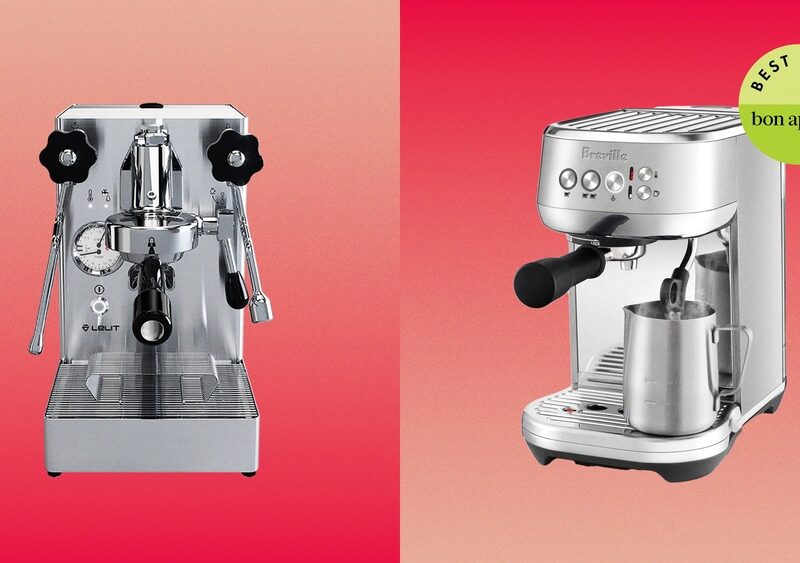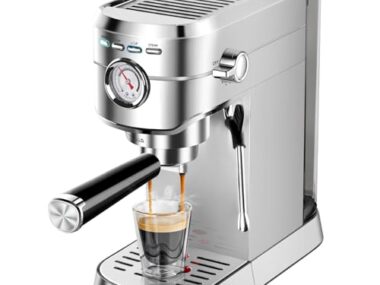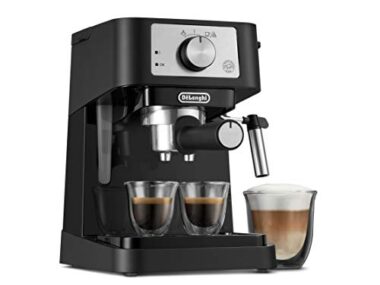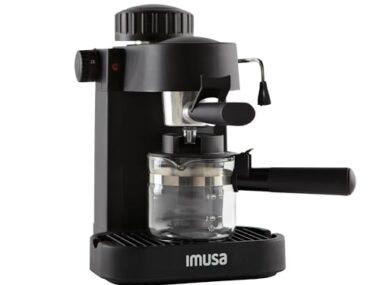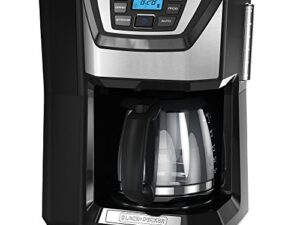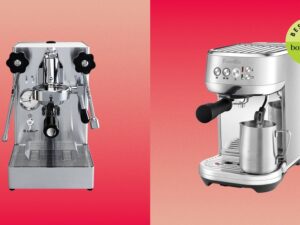Are you wondering if an espresso machine is truly worth the investment? You’re not alone.
With so many options on the market and countless coffee shops just around the corner, it’s easy to question whether owning one will really enhance your daily coffee ritual or just add clutter to your kitchen. But what if having an espresso machine at home could save you money, give you the freedom to make café-quality drinks anytime, and even sharpen your barista skills—all without leaving your house?
Keep reading to discover the real benefits and drawbacks, so you can decide if an espresso machine is the perfect fit for your lifestyle.
Benefits Of Home Espresso
Making espresso at home offers many advantages that improve your coffee experience. It lets you enjoy fresh espresso any time you want. No need to wait in long lines or pay high prices at cafes.
You gain full control over the coffee’s taste and strength. This makes every cup exactly how you like it. Plus, owning an espresso machine can save money over time.
Cost Savings Over Time
Buying espresso from cafes every day adds up quickly. A home espresso machine lets you make many cups for less money. You can buy coffee beans in bulk, which lowers costs even more.
This saves you both money and trips outside. The initial machine price pays off after a few months of use. Your daily coffee budget shrinks while quality stays high.
Control Over Quality
At home, you control the beans, grind size, and water temperature. This helps you brew espresso exactly to your taste. No more surprises from baristas or different cafe blends.
Home machines let you experiment with flavors and strength. You can adjust everything until you find your perfect cup. This personal touch improves your coffee enjoyment.
Convenience And Accessibility
Espresso at home is ready whenever you want it. No need to rush to a coffee shop or wait in line. You can make espresso early morning or late at night easily.
Having a machine at home means fresh espresso is always accessible. This fits busy lifestyles and saves time. You get cafe-style coffee without leaving your house.
Types Of Espresso Machines
Choosing the right espresso machine can feel confusing at first. Different types fit different needs and budgets. Understanding these types helps you decide if an espresso machine is worth it.
Some machines need more effort but offer more control. Others do most of the work for you and are easy to use. There are also options for those who want to spend less and those who want high-end features.
Manual Vs Automatic
Manual machines require you to grind, tamp, and pull the shot yourself. You control every step and can adjust the taste exactly. These machines suit coffee lovers who enjoy the process.
Automatic machines handle most of the work. You just press a button, and the machine does the grinding and brewing. They save time and reduce mistakes but offer less control over the final taste.
Budget-friendly Options
Budget machines are perfect for beginners or casual drinkers. They are simple, smaller, and cost less. These models may lack advanced features but still make good espresso.
Many budget machines are automatic or semi-automatic. They offer convenience without breaking the bank. Ideal for home use and those new to espresso.
High-end Models
High-end machines come with advanced technology and build quality. They offer precise temperature control and pressure settings. These machines are built for serious coffee lovers and professionals.
They can be manual, semi-automatic, or fully automatic. Expect a higher price but better durability and taste. Perfect for those who want café-quality espresso at home.
Factors Affecting Worth
Deciding if an espresso machine is worth it depends on several key factors. These factors influence how much value you get from your machine. Understanding them helps make a better choice. The following points break down the main considerations.
Frequency Of Use
How often you drink espresso affects the machine’s value. Daily users get more use and save money over time. Occasional drinkers might not see enough benefit. The cost per cup drops with frequent use. A machine sits idle if used rarely.
Skill Level Required
Espresso machines need some skill to operate well. Beginners may find it hard to get perfect shots. Practice improves taste and satisfaction. Some machines have simple controls for ease. Others require knowledge of grind size and tamping.
Maintenance And Upkeep
Cleaning and maintaining the machine takes time and effort. Regular descaling keeps the machine working properly. Neglect can cause poor espresso quality and breakdowns. Some models need more upkeep than others. Easy maintenance means less hassle and longer machine life.

Credit: www.reddit.com
Comparing Costs
Understanding the costs of owning an espresso machine helps decide if it fits your budget. Comparing the initial price, ongoing expenses, and savings from skipping cafe visits shows the true value. This section breaks down these costs clearly.
Initial Investment
Espresso machines vary in price. Basic models start around $100. Mid-range machines cost between $300 and $700. High-end machines can exceed $1,000. Some machines include built-in grinders, which add to the price. Consider the machine’s features and durability. A higher price often means better quality and longer life.
Ongoing Expenses
After buying the machine, you pay for coffee beans, filters, and maintenance. Fresh, quality beans cost about $10 to $20 per pound. Filters and cleaning supplies add small extra costs. Regular maintenance keeps the machine working well. Some parts may need replacement over time. These expenses add up but usually stay lower than cafe costs.
Savings Compared To Cafe Visits
Buying espresso at a cafe costs $3 to $5 per cup. Making espresso at home reduces this to about $0.50 to $1 per cup. Daily coffee drinkers save money fast. For example, drinking two espressos daily can save over $1,000 yearly. Home machines also save travel time and convenience costs. These savings help balance the initial investment and expenses.
Common Drawbacks
Espresso machines bring the charm of café-quality coffee right into your kitchen. Yet, they come with some downsides that many buyers face. Knowing these common drawbacks helps you decide if owning one suits your lifestyle and needs.
Learning Curve
Espresso machines require some skill to use well. It takes time to learn how to grind beans correctly and adjust settings. Beginners often struggle with getting the right taste and texture. Patience is key to avoid frustration. Practice leads to better coffee but the initial learning phase may feel tough.
Space And Convenience
These machines often take up significant counter space. Not every kitchen can accommodate them easily. Cleaning and maintenance add to daily tasks. Some models need frequent descaling and part replacements. This setup may not suit those wanting quick, hassle-free coffee.
Potential Health Considerations
Drinking too much espresso can cause side effects. High caffeine intake might lead to anxiety or sleep problems. People with heart issues should be cautious. Moderation ensures you enjoy espresso without health risks. Always listen to your body’s response.
Making The Decision
Deciding to buy an espresso machine involves more than just liking coffee. It is about fitting the machine into your daily life and needs. Think about your habits, budget, and what you want in the future. These factors help you understand if an espresso machine is worth it for you.
Consider how often you drink coffee and what kind you prefer. Look at your finances and what you can spend. Think about your long-term plans with coffee making. Each part plays a role in making the right choice.
Personal Coffee Habits
How much coffee do you drink each day? Do you enjoy a quick cup or a slow, crafted espresso? If you drink espresso daily, a machine might save time and money. If you rarely drink espresso, it might not be worth the cost or space. Also, think about if you like experimenting with coffee styles or prefer simple drinks.
Budget Considerations
Espresso machines come in many prices. Some are affordable, while others can be quite expensive. Consider how much you want to spend upfront and on maintenance. Don’t forget costs for coffee beans and accessories. A higher price might mean better quality and durability, but only if you use it often.
Long-term Goals
Think about your future with coffee. Do you want to improve your barista skills? Or do you want a machine that lasts for years? A good machine can be an investment for your coffee enjoyment. If your goal is to save money on coffee shop visits, calculate how long it will take to recover the cost. Also, consider if you want to share coffee moments with family or friends.
Tips For Smart Brewing
Smart brewing improves your espresso experience. It ensures every shot tastes just right. Simple steps can make a big difference. Follow these tips to get the best from your machine.
Choosing The Right Beans
Pick fresh beans for better flavor. Look for beans roasted within the last two weeks. Dark roasts work well for espresso. Avoid old or stale beans. Use whole beans and grind just before brewing. This keeps the coffee’s aroma and taste strong.
Dialing In Your Machine
Adjust grind size to control extraction speed. Fine grinds slow water flow, coarse grinds speed it up. Aim for a balanced shot in 25-30 seconds. Measure dose and tamp pressure evenly. Small changes affect taste, so test and adjust often.
Maintenance Best Practices
Clean your machine daily to avoid buildup. Flush group heads after each use. Descale regularly to remove mineral deposits. Clean portafilter and baskets with warm water. Proper care extends machine life and keeps espresso fresh.
:max_bytes(150000):strip_icc()/faw-espresso-machines-sep-24-test-breville-oracle-jet-nsimpson-0883-c6a5a8c0b1da49fcb0cd768d27051d9c.jpeg)
Credit: www.foodandwine.com
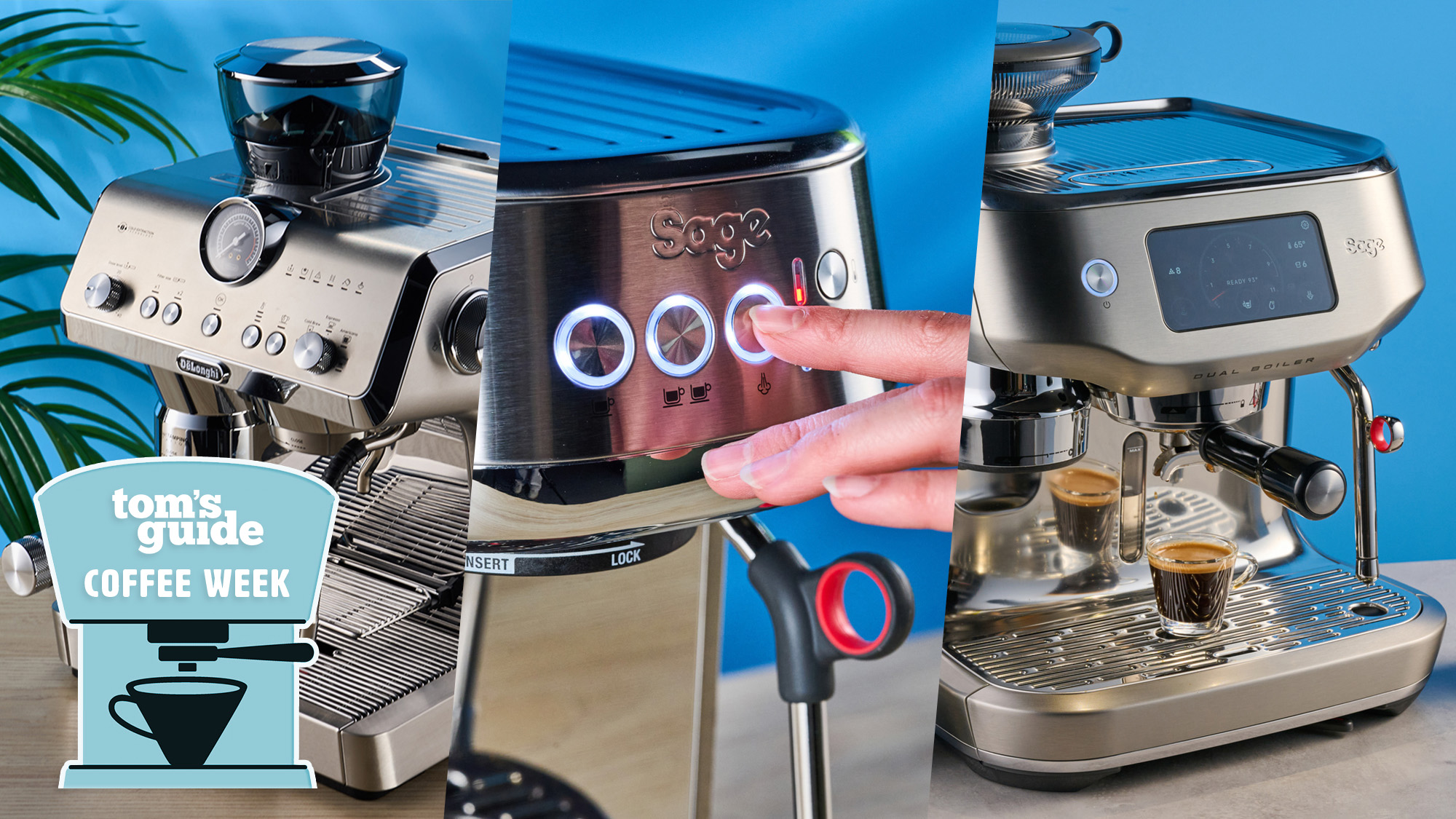
Credit: www.tomsguide.com
Frequently Asked Questions
Is It Worth It To Make Espresso At Home?
Making espresso at home saves money, offers convenience, and lets you control quality. It suits those who enjoy learning and customizing coffee.
What Is The 2 1 Rule For Espresso?
The 2:1 rule means extracting twice the amount of espresso liquid compared to dry coffee grounds used. For example, 20g coffee yields 40g espresso. This balance ensures optimal flavor and strength in your shot.
What Is The Disadvantage Of Espresso Coffee?
Espresso coffee can cause anxiety, insomnia, and digestive issues if consumed excessively. Its strong caffeine content may not suit everyone.
Does An Espresso Machine Save You Money?
An espresso machine saves money by reducing daily coffee shop visits. Buying beans in bulk lowers costs. Home brewing offers quality and convenience.
Conclusion
An espresso machine can save money over time and offer convenience. It lets you enjoy fresh espresso anytime at home. Learning to use it takes some practice but is rewarding. Consider your coffee habits and budget before buying. For daily espresso lovers, it often proves worth the cost.
Choose a machine that fits your needs and skill level. This way, you get good coffee without the cafe trips. In the end, the decision depends on your lifestyle and preferences.
